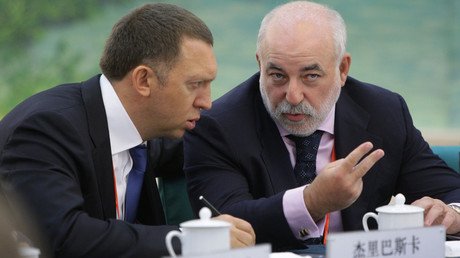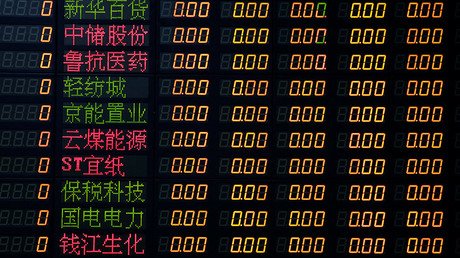Sanctions on Russian billionaires trigger collapse of Swiss franc

Political turmoil usually leads to a money flow to safe havens like the Swiss currency. But this week, an unusual pattern led to the biggest decline of the franc against the euro since January 2015.
The Trump administration issued an expanded list of sanctions last Friday, targeting Russian businessmen and companies. Separately, Trump threatened Russia with missile strikes on Moscow’s ally Syria.
The political instability caused a sell-off on the US stock markets, and strengthened safe havens like gold and the Japanese yen. But another safe haven, the Swiss franc, took a hit.
“The Swiss franc is driven predominantly by capital flows for now and Russia sanctions included Swiss companies where Russians are invested,” said Manuel Oliveri, a currency strategist at Credit Agricole SA, told Bloomberg.
“Increased need for liquidity by Russians, and no appetite for leaving cash in Switzerland, is changing the franc’s correlation with risk sentiment,” he said, adding market speculation on this issue was hard to confirm. An example of such a Swiss company is Sulzer AG.
Shares in Sulzer, a machinery manufacturer, fell on Wednesday. The next day, however, they surged the most in 21 years after sanctioned Russian businessman Viktor Vekselberg cut his stake.
“The Swiss franc has been caught squarely in the Russian sanctions issue. For a small, open economy like Switzerland, getting caught in a geopolitical tug of war is extremely risky. Switzerland still derives value from safety and privacy. So when that is threatened in any way certain investors get nervous,” Peter Rosenstreich, head of market strategy at Swissquote Bank SA, told Bloomberg.
For more stories on economy & finance visit RT's business section















